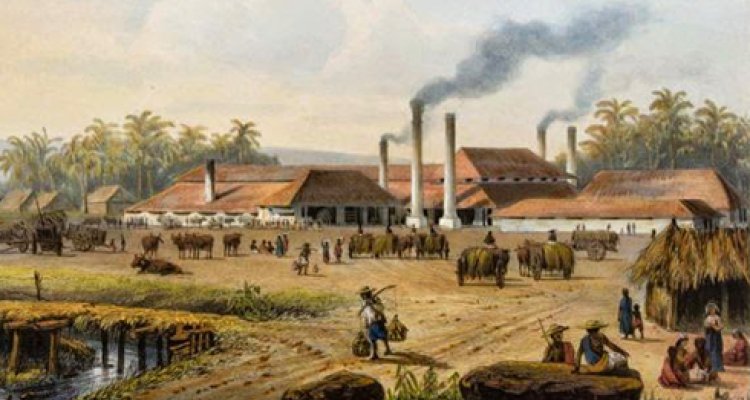
About the Economic and Environmental History Group
We offer various courses in history to students of Wageningen University & Research. Our research program is situated at the crossroads of rural, environmental, social, economic and global history.
Our mission is to offer temporal depth to societal debates and social theories on sustainable and equitable welfare development. We apply comparative historical methods to better understand long-term patterns of interdependence between people, institutions and environments. Our empirical work builds on a combination of qualitative sources and large statistical datasets, which we construct from historical archives across the globe. Our current research projects are situated in Africa, Asia, Europe and Latin America (c. 1500-2000).
Our history
In 1956, Professor E.W. Hofstee, the intellectual architect of social sciences at Wageningen, finally succeeded in formulating an offer to Bernard Slicher van Bath, then a professor of economic history at the University of Groningen, that he could not refuse: if Slicher agreed to move to Wageningen, he would be granted a department with five full-time research positions and minimal teaching obligations. This marked the inception of what would be known as the Department of Rural History (in Dutch: afdeling agrarische geschiedenis).
Slicher and his interdisciplinary team (historian, economist, sociologist, agronomist) delivered substantial value for their investment. Through their flagship publication series, AAG Bijdragen, they transformed Dutch historiography in the 1960s by employing quantitative research methods based on archival sources and utilizing social science techniques for analysis and interpretation. Early modern Dutch history was enriched with demographic and economic perspectives, alongside the traditional political and trade narratives, highlighting the significant roles of rural areas and agriculture.
In 1975, Slicher was succeeded by Ad van der Woude. Under his leadership, the department shifted its focus more towards the nineteenth century and socio-cultural processes, while maintaining its emphasis on quantitative research grounded in archival sources and informed by social sciences. Despite the continued high-quality output, the university administration, faced with financial challenges in the 1980s and 1990s, decided that Van der Woude would be succeeded by a half-time professor. In 1999, Pim Kooij took over as the department head while simultaneously holding a half-time position as chair of the economic history group at Groningen University. The history group remained committed to its principles of quantitative research based on archival sources and informed by social sciences. The focus expanded to include the twentieth century, with agriculture and rural heritage becoming central themes.
From 2012, with the arrival of Ewout Frankema as new chair of the group, the research focus shifted to study long-run economic (including agricultural) and environmental development in the “Global South” from the nineteenth century. In 2022 the group was aptly renamed the Economic and Environmental History Group and the research is structured along four themes: (1) Coping with Environmental and Food Crisis Throughout History; (2) Roots of Health and Educational Inequalities ; (3) Long-Run Trends in Economic Inequality and Migration; (4) Legacies of Colonialism and Slavery.